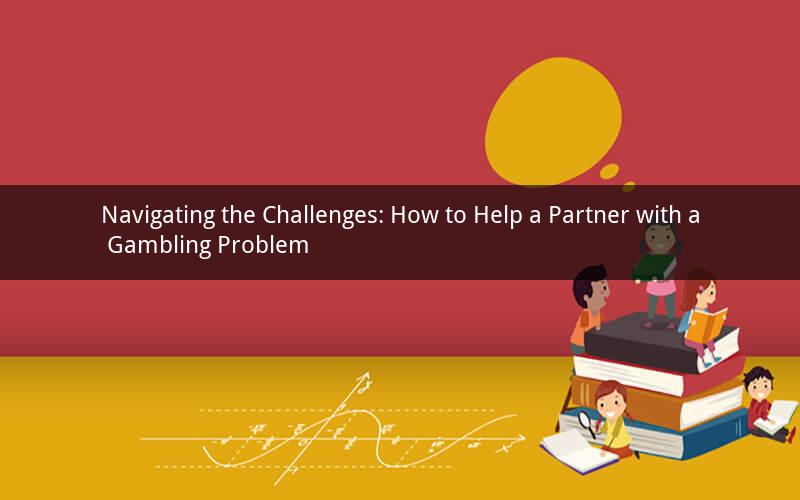
Introduction:
Gambling addiction is a complex issue that can deeply impact both individuals and their relationships. Recognizing the signs and taking appropriate actions to support a partner struggling with a gambling problem is crucial. In this article, we will explore various strategies and steps to help a partner with a gambling problem.
1. Understanding the Problem:
It is important to have a clear understanding of what gambling addiction entails. Explain that gambling addiction is a chronic disorder characterized by an inability to control gambling behavior, despite negative consequences. Emphasize that it is not a moral failing but a treatable condition.
2. Communication:
Open and honest communication is key in supporting a partner with a gambling problem. Here are some guidelines:
a. Express your concerns and feelings without placing blame or judgment. Use "I" statements, such as "I feel worried about your gambling behavior," instead of "You always gamble too much."
b. Listen actively and empathetically to your partner's perspective. Avoid interrupting or becoming defensive.
c. Avoid confrontational language or arguments. Instead, focus on finding a solution together.
3. Encourage Professional Help:
Encourage your partner to seek professional help from a therapist or counselor specializing in gambling addiction. Explain that therapy can provide them with the necessary tools and strategies to overcome their addiction.
4. Support Groups:
Support groups can be a valuable resource for both the individual struggling with a gambling problem and their loved ones. Encourage your partner to join a support group for individuals with gambling addiction. Additionally, consider attending a support group for family members affected by gambling addiction.
5. Set Boundaries:
Establish clear boundaries to protect both yourself and your partner. These boundaries may include:
a. Limiting access to gambling opportunities, such as removing credit cards or blocking online gambling sites.
b. Establishing financial boundaries, such as monitoring joint bank accounts or setting spending limits.
c. Communicating openly about your expectations and concerns regarding gambling behavior.
6. Educate Yourself:
Educate yourself about gambling addiction to better understand the challenges your partner faces. This knowledge can help you provide more effective support and empathy.
7. Practice Self-Care:
Supporting a partner with a gambling problem can be emotionally and physically draining. It is important to take care of yourself during this journey. Consider the following self-care strategies:
a. Seek support from friends, family, or professionals who can provide guidance and encouragement.
b. Engage in activities that promote relaxation and stress relief, such as exercise, meditation, or hobbies.
c. Set aside time for yourself to recharge and maintain your own well-being.
8. Be Patient and Persistent:
Overcoming a gambling addiction is a challenging process that requires time and effort. Be patient and persistent in your support, even if progress seems slow. Celebrate small victories and acknowledge the effort made by your partner.
9. Explore Financial Solutions:
If the gambling addiction has caused financial difficulties, explore options for resolving these issues. This may involve seeking financial counseling, creating a budget, or seeking assistance from credit counseling services.
10. Maintain Open Communication:
Maintain open communication with your partner throughout their recovery journey. Encourage them to share their thoughts, feelings, and concerns. Provide a safe and supportive environment for them to express themselves.
Questions and Answers:
Q1: How can I recognize the signs of a gambling problem in my partner?
A1: Signs of a gambling problem may include secretive behavior, financial difficulties, increased stress or anxiety, and neglecting responsibilities. Pay attention to changes in your partner's behavior, appearance, and mood.
Q2: Should I confront my partner about their gambling addiction?
A2: Confronting your partner can be effective if done in a non-confrontational and empathetic manner. Use "I" statements to express your concerns and focus on finding a solution together.
Q3: Can I force my partner to seek help for their gambling addiction?
A3: While you cannot force someone to seek help, you can encourage and support them. Offer to help them find resources and provide a supportive environment for their recovery journey.
Q4: How can I support my partner during their recovery from a gambling addiction?
A4: Support your partner by being empathetic, patient, and persistent. Encourage them to seek professional help, attend support groups, and establish boundaries to protect both of you.
Q5: What should I do if my partner's gambling addiction is causing severe financial difficulties?
A5: If financial difficulties are a concern, explore options for resolving these issues, such as seeking financial counseling, creating a budget, or seeking assistance from credit counseling services. It is important to address both the addiction and the financial problems simultaneously.